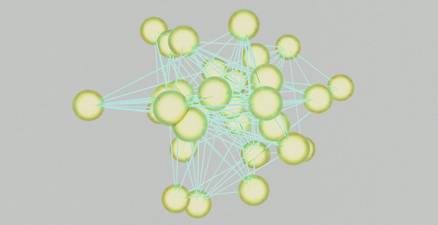Imageslot API URL Parameters Explained
Master the art of custom image generation with Imageslot by understanding every API URL parameter. This guide walks you through query strings, parameter combinations, accepted values, and best practices—empowering you to create dynamic, perfectly optimized placeholder images for any project.
How URL Parameters Work in Imageslot
Imageslot’s API generates images based on the parameters you provide in the URL—these are called query strings. By tweaking the URL, you can specify the image size, colors, text, format, and more. The API reads the parameters and instantly returns a custom image. It’s a flexible, code-friendly way to automate design, prototyping, and UI testing.
- Parameters are added after a
?in the URL and separated by&. - Each parameter controls a different aspect of the image (size, color, format, etc).
- You can combine parameters for fine-grained control.
Pro Tip: Most tools (Figma, WordPress, React, Vue) just need a single dynamic URL—no downloads or manual uploads!

Imageslot API URL Parameter Reference
| Parameter | Description | Accepted Values | Default | Required? | Example Usage |
|---|---|---|---|---|---|
width / height |
Image dimensions in pixels. Use /v1/{width}x{height} in the URL path. |
50–2000 (integer) | None (must be set in URL path) | Yes | /v1/800x450?... |
bg |
Background color (hex, no #) or transparent for PNG. |
e.g., 23272F, 3DA35D, transparent |
173559 |
No | ?bg=3DA35D |
fg |
Text (foreground) color (hex, no #). |
e.g., FFFFFF, 23272F |
FFFFFF |
No | ?fg=23272F |
shadow |
Shadow color for text (hex, no #). |
e.g., 3DA35D, 23272F |
23272F |
No | ?shadow=3DA35D |
text |
Custom text overlay (spaces as + or %20). |
Up to 64 characters | "{width}x{height}" | No | ?text=Hero+Banner |
fontsize |
Font size for overlay text (px). | 8–128 (integer) | 36 | No | ?fontsize=48 |
bold |
Bold text. Set to 1 to enable. |
1 (enabled), omit for normal | Off | No | ?bold=1 |
italic |
Italic text. Set to 1 to enable. |
1 (enabled), omit for normal | Off | No | ?italic=1 |
filetype |
Image format/extension. Determines output type. | png, jpg, jpeg, gif |
png |
No | ?filetype=jpg |
quality |
Image quality for JPG/JPEG (percent). | 1–100 | 85 | No | ?quality=70 |
cb |
Cache-buster. Any value (e.g., timestamp) to force reload. | Any (e.g., cb=20250522) |
None | No | ?cb=20250522 |
font |
Font family (if supported). Defaults to main font. | e.g., manrope, roboto |
Platform default | No | ?font=roboto |
Note: All parameters are case-insensitive. If you omit a parameter, the default value is used.
Sample API Calls & Usage Examples
Basic Usage: Generate a Default Image
https://imageslot.com/v1/600x400?filetype=pngCreates a 600x400 PNG with default colors and size text overlay.
Advanced Customization: Custom Text, Colors, Bold
https://imageslot.com/v1/800x300?bg=1A726B&fg=fff&text=Vue+Banner&bold=1&filetype=jpgCustom teal background, white bold text, 800x300 JPG.
Common Use Case: Transparent PNG for UI Overlay
https://imageslot.com/v1/400x200?bg=transparent&text=Overlay&filetype=pngTransparent background, custom text, perfect for UI mockups.
Combining Parameters: Shadows, Font Size, Quality
https://imageslot.com/v1/728x90?shadow=3DA35D&text=Leaderboard&fontsize=48&quality=70&filetype=jpgLeaderboard banner with shadow, custom font size, JPG quality 70%.

FAQ: Troubleshooting & Best Practices for URL Parameters
If you omit a parameter, Imageslot will use its default value. For example, if you don’t specify
bg, it defaults to 173559 (deep blue). Required parameters (like size in the URL path) must be set, or the API will return an error. Check the Parameter Reference Table above for defaults.
If you specify conflicting parameters (like
filetype=jpg and filetype=png), Imageslot will use the last value in the URL. Always set each parameter only once per call to avoid ambiguity.
For fastest loading, use
filetype=jpg with quality=70–85 for most web scenarios. For sharp edges or transparency, use filetype=png. Avoid setting images much larger than needed. For more, see image format comparison.
You can use string concatenation in any programming language (PHP, JS, Python) to build dynamic URLs. For example, in PHP:
$url = 'https://imageslot.com/v1/' . $w . 'x' . $h . '?text=' . urlencode($text) . '&filetype=png';
See our usage examples for more details.
Double-check your URL for typos, unsupported values, or missing required parameters (like width/height). If you’re using parameters not listed above, remove them and retest. Also, verify your browser isn’t blocking the image (e.g., mixed content). See troubleshooting tips for more.
Imageslot is optimized for high-volume use, but excessive automated requests may be rate-limited to ensure fair usage. Avoid using the API for hotlinking in production apps without review. For more on best practices, visit our API documentation.
Absolutely! Just paste your custom Imageslot URL (with the desired parameters) into your framework or tool. For step-by-step guides and advanced usage, see our integrations hub.